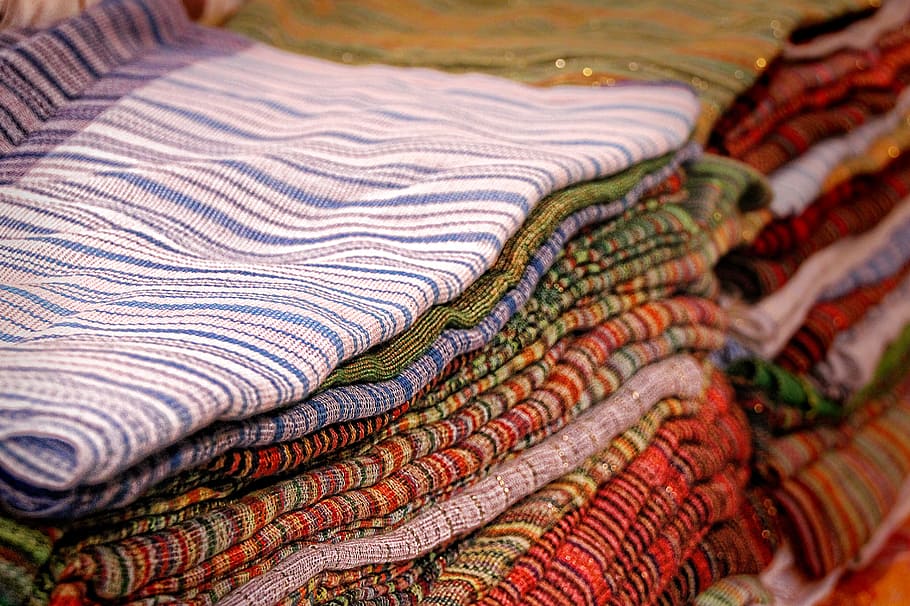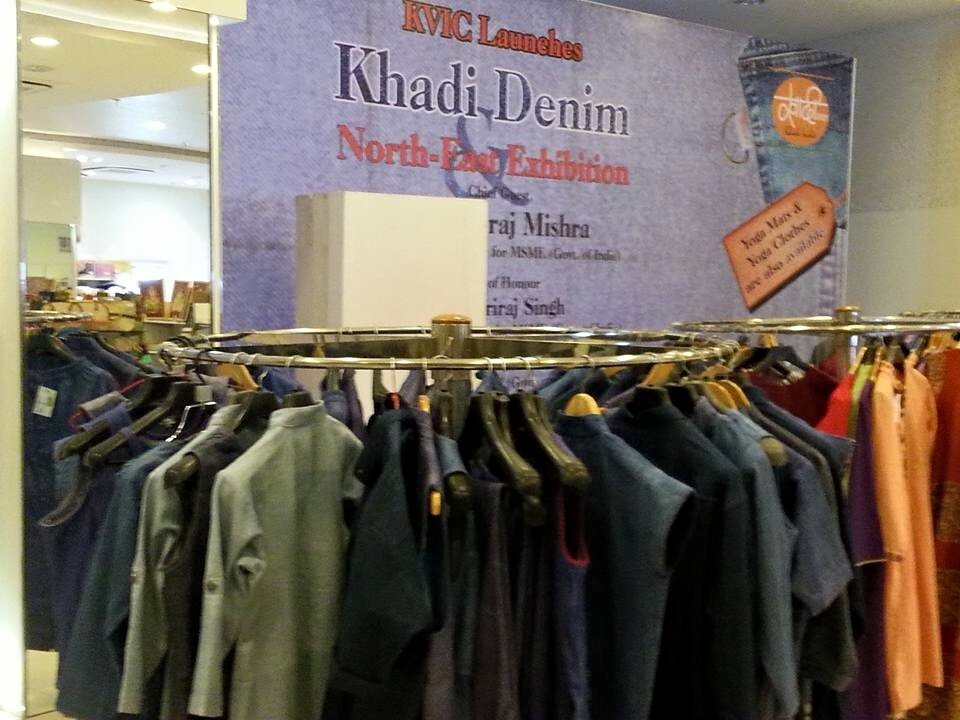Khadi’s Unique Blend of Tradition and Sustainability: Discover how adopting Khadi as corporate attire not only showcases a commitment to Indian culture but also supports eco-friendly practices, preserving traditional craftsmanship and empowering local communities. Unlock the potential of sustainable fashion and responsible consumption with Khadi’s versatile and timeless appeal.
Why should Khadi and traditional Indian fashion be the preferred corporate attire? Beyond yoga, meditation and Indian spiritual values to Indian traditional attire adoption at corporate level will help promote and globalize Indian products.
Khadar-Khadi made dresses as formal dress code for Indian corporates will be promoting not just weavers and cottage industries but also help will instil a sense of national pride among employees and demonstrates a deep connection to Indian culture and traditions.

In a world where the challenges of climate change loom large, it is essential that responsible manufacturing and consumption are reflected at every level. Its time to adopt green practices at all levels. From saving on office stationery, adopting to more sustainable office stationery products, energy saving and avoiding power wastage and energy efficient building designs to so many other aspects. Here, formal dress codes that are attuned to local culture, traditions, climatic realities are also part of sustainability.Particularly by adopting a dress code which includes Khadi-Khadar made fabrics and Khadi-KVIC products, corporates will be contributing to sustainable development goals: #SDG8 ;#SDG12.
Khadi: Economic Growth, Responsible production & Consumption
The Indian corporate world must shift to adopting traditional attire and fashion trends too in their formal dress code menu. Khadi-Khadar fibre made dresses provide greater comfort both during the summer and winter and keep body temperature regulated and make one fresh throughout the day. Sustainable Development Goal (SDG 12) focuses on Responsible Consumption and Production of Khadi and traditional Indian fashion offer a compelling case as the preferred corporate attire, especially in a world striving to combat climate change. By embracing this sustainable and culturally rich choice, companies can align themselves with responsible practices, contribute to the preservation of traditional craftsmanship, and create a positive impact on both their workforce and the environment.

India with an ancient civilization, entrepreneurial culture and legacy, its private sector too need to showcase its unique traditions in private corporate dress code. With BRICS emerging as an economic gravitational force in the emerging world, India has a significant position in the world of business. Its huge market attracts corporates, brands and businesses from world over, which is an opportunity for Khadi, weavers, artisans and cottage industries, which all stand apart for its green processes, technologies and sustainability approaches. Global culture with significant space for local cultures, swadeshi dress and fashion trends as both formal and casual corporate dress code. This has many benefits for the corporates as well.
Khadi as corporate dress code: responsible consumption
In an era where environmental consciousness and sustainable practices are gaining momentum, introducing Khadi-Handmade clothing as a new corporate dress code can unlock a plethora of positive impacts. With a strong focus on incorporating eco-friendly practices into the corporate world, companies have the unique opportunity to reduce their ecological footprint while supporting local communities and artisans.

Consuming products from sectors that create more jobs, livelihoods, more families and thereby contributing to reduce poverty. Shifting to Khadi or products from village industries that use more labour intensive techniques will contribute in raising sustainability of micro and cottage enterprises. Can the corporate executives adopt Khadi cotton made suits and dresses? If the large scale industry, corporate world and the government employees massively adopt Khadi and micro-cottage industry products as part of their life, jobs can not be sustained.
Charkka represents economic freedom & financial independence, self-sufficiency and the vibrant entrepreneurial culture of India. Growing acceptance and demand for hand made products particularly khadi clothes represent changing fashion trends.
Freedom from Robots, machines and carbon emission
Traditional cottage manufacturing, which is labour intensive are often sustainable. They come out from a responsible manufacturing process. Chakka- Khadi products, labour intensive in nature, promotes sustainable practices. While they are oriented to green technologies, manufacturing process they are the solution for a world which is troubled by carbon emission, human replacing technologies and climate change challenges. The product offerings are healthy, green and contributes to job creation, regional economic development and supports entrepreneurs of micro and tiny sector. Clothes created by Khadi and weavers of handloom sector are not only comfortable but are becoming fashion trend of today.
Khadi as corporate dress code: advantages
Introducing Khadi-Handmade clothes as a new corporate dress code can have several positive impacts. The Indian hand-woven textile industry, specifically Khadi, is known for its sustainable and eco-friendly practices. Here are some reasons why it could be beneficial to adopt Khadi-Handmade clothes as a corporate dress code:
Environmental Sustainability: Khadi is made from natural fibers such as cotton, silk, and wool, which are biodegradable and have a lower environmental impact compared to synthetic materials. By promoting Khadi as the dress code, companies can contribute to reducing their carbon footprint and supporting sustainable fashion.
Preservation of Traditional Crafts: Encouraging the use of Khadi promotes traditional Indian crafts and helps sustain the livelihoods of artisans involved in hand weaving. This supports rural economies and preserves the rich cultural heritage of India.
Social Responsibility: Adopting Khadi-Handmade clothes as a dress code aligns with corporate social responsibility initiatives. It showcases a commitment to promoting ethical and sustainable practices and can enhance a company’s reputation in the eyes of customers, employees, and stakeholders.
Employee Well-being: Khadi fabric is known for its comfort and breathability, making it suitable for daily wear. Employees would appreciate the comfort and natural feel of these clothes, which can contribute to their overall well-being and productivity.
Unique Identity: Embracing Khadi as the corporate dress code can give an organization a distinct identity. It reflects a commitment to Indian culture and heritage, setting the company apart from others and fostering a sense of pride among employees.

Khadi (KVIC) gaining new heights
In the recent years, thanks to enhanced promotional effort, government push as well shifting fashion trends and taste for cotton & hand made products globally, Khadi and Village Industries Commission (KVIC) has achieved a massive turnover of Rs 1.15 lakh crore, from 2014-15, the production in the Khadi sector in 2021-22 has increased by 191%, while the Khadi sales have increased exponentially by 332%, which also resulting better pay & compensation , monthly income of artisans by around 33% and 10 % hike in the wages of weavers. The sector (Khadi & Village Industries Commission) engages five lakh people directly and indirectly many more (MSME, Annual Report 2022-23,P.54)
However, it is important to consider practical aspects such as availability, affordability, and individual preferences. Not everyone may find Khadi clothing accessible or affordable.
To conclude, Khadi will take Indian corporate sector much greater heights.
Khadi is not just a fabric; it represents a significant chapter in India’s history, symbolizing the spirit of self-reliance and freedom. Images of Mahatma Gandhi spinning a charkha and Khadi products generate feelings of national pride and the need for self-reliance among Indians. The integration of Khadi as corporate attire will not only foster a profound connection to Indian culture and traditions but also induce a strong sense of national pride among employees.
P. Koshy, can be reached at caushie@gmail.com
Author Profile
-
Dr. Perumal Koshy is Editor of Global SME News and Director of Strategic Initiatives at Enterprise Futures Lab. He writes on MSMEs, enterprise development, and policy issues affecting small business ecosystems.
Linkedin: https://www.linkedin.com/in/caushie/
Twitter: https://twitter.com/pkoshyin
Latest entries
 FEATURED25 November 2024Rethinking Work Hours: The Case for Balance in SME Growth Strategies?
FEATURED25 November 2024Rethinking Work Hours: The Case for Balance in SME Growth Strategies? AI25 November 2024Microsoft’s ‘Zero Day Quest’: A $4 Million Challenge to Revolutionize AI and Cloud Security!
AI25 November 2024Microsoft’s ‘Zero Day Quest’: A $4 Million Challenge to Revolutionize AI and Cloud Security! FEATURED5 November 2024Collaboration Agreement Signed Between Mubadala Energy and Perusahaan Listrik Negara (PLN) to Explore Harnessing Natural Gas Discoveries
FEATURED5 November 2024Collaboration Agreement Signed Between Mubadala Energy and Perusahaan Listrik Negara (PLN) to Explore Harnessing Natural Gas DiscoveriesFEATURED23 October 2024Resilient Trade Amid Global Uncertainty: How Intra-BRICS Commerce is Shaping a New Economic Order










